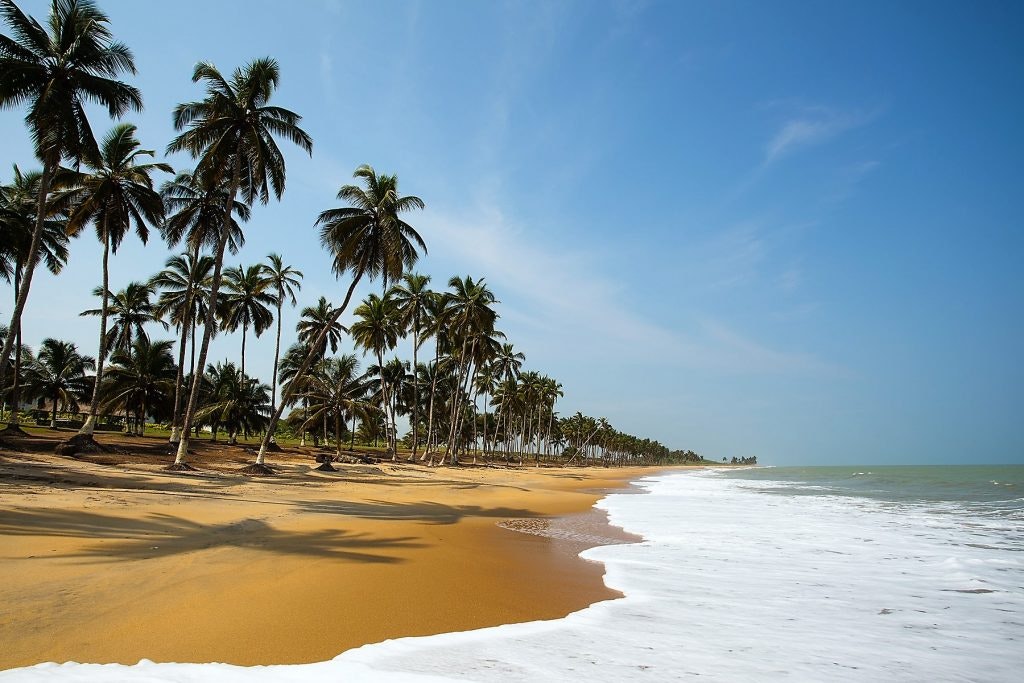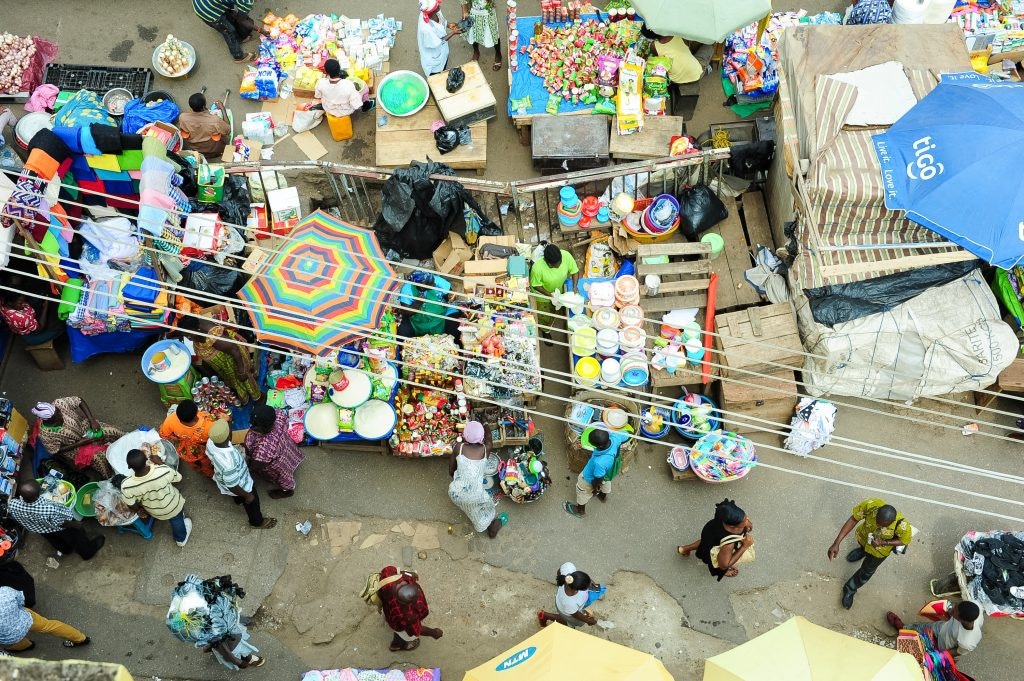4. Dancing and drumming are central to daily life
In Ghana, dancing and drumming are central to daily life and their passion has spread globally. On TikTok alone, there more than 160 million posts about Ghanian dance.
Read about which instrument is popular in Chad.
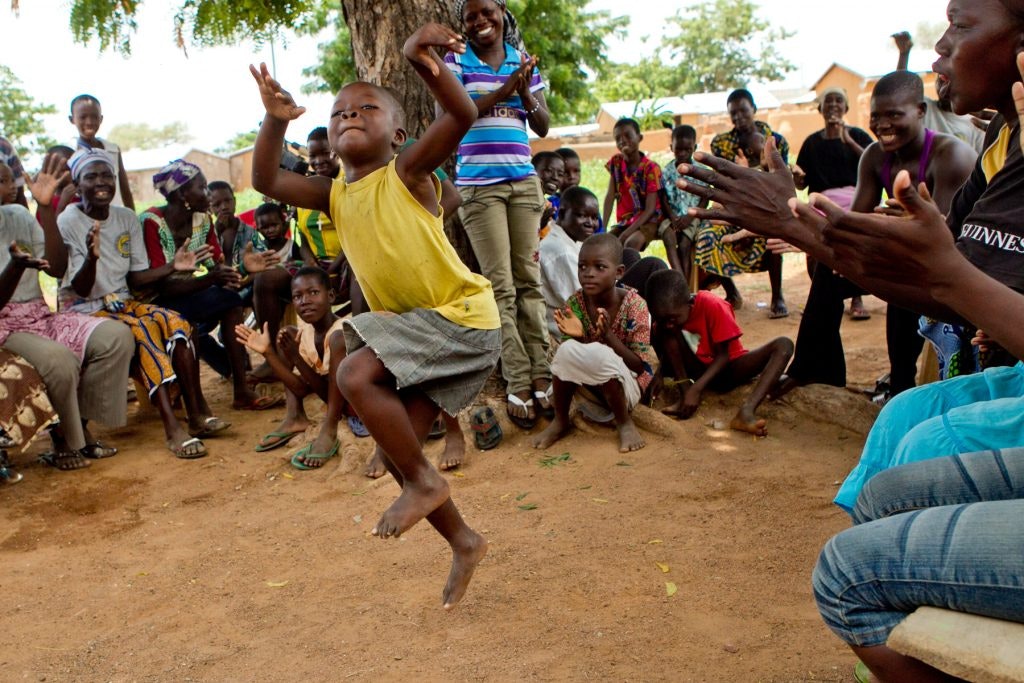
Celebrate, dance and embrace the joy of togetherness in Ghana.
Key Elements of Ghanaian Culture include:
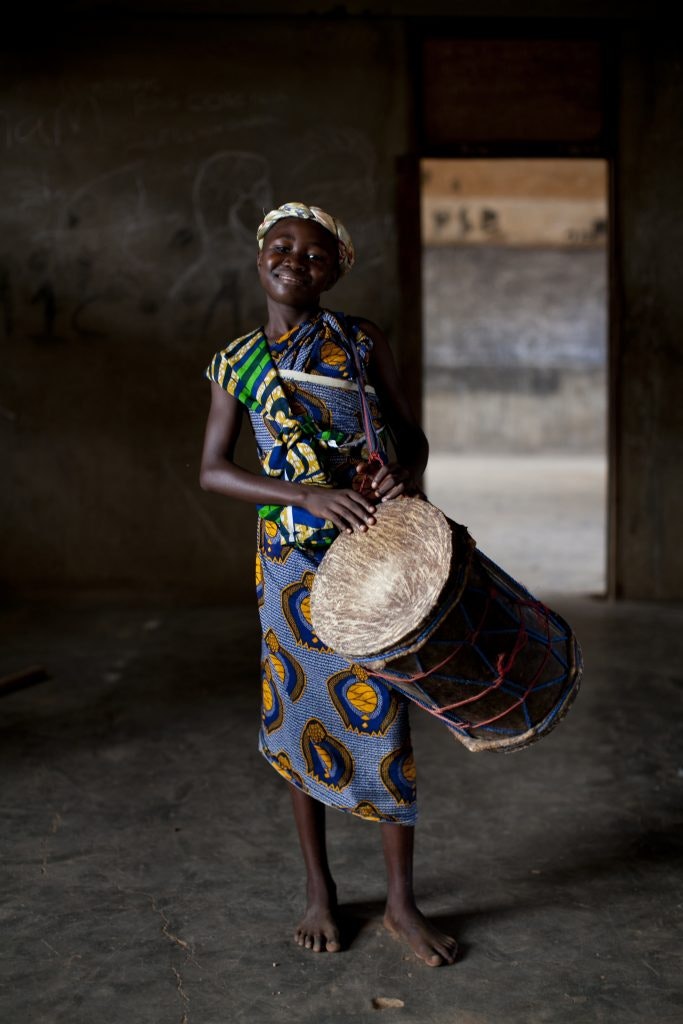
Drums are the rhythm of Ghana.
- Azonto Dance: A dance and music genre from the Ga tradition, featuring coordinated hand and foot movements that mimic daily activities.
- Drum Rhythms: Drumming conveys messages of unity and respect for ancestors, playing a central role in ceremonies and events.
- Kente Cloth: A traditional Ghanaian textile made from silk and cotton strips, with patterns and colors symbolizing social status and history.
Extra fact: Ghanaian art is renowned for its bold, vibrant colors and depictions of everyday life, nature and spirituality. Ace Liam holds the Guinness World Record for the youngest artist to exhibit a solo art show. His achievement was recognized after his exhibition in Accra from January 18 to 20, 2024.
5. Ghana is rich in rainforests, grasslands and coastal wetlands
Some of Ghana’s natural highlights include:
- Lake Bosumtwe: Ghana’s only one natural lake, formed in a meteorite crater.
- Lake Volta: Among the world’s largest artificial lakes, spanning 3,280 square miles (8,502 square kilometers) and vital for hydroelectric power.
- Wli Waterfall: The tallest waterfall in West Africa, standing over 262 feet (80 meters) high, located in the wildlife-rich Agumatsa Sanctuary.
Ghana has some amazing national parks. Kakum National Park, a tropical rainforest reserve is one of Ghana’s top attractions and lets visitors walk across canopy bridges 130 feet (40 meters) above the ground for great views and wildlife spotting. In the northwest Savannah, Mole National Park is famous for its elephants, antelopes and over 250 bird species.
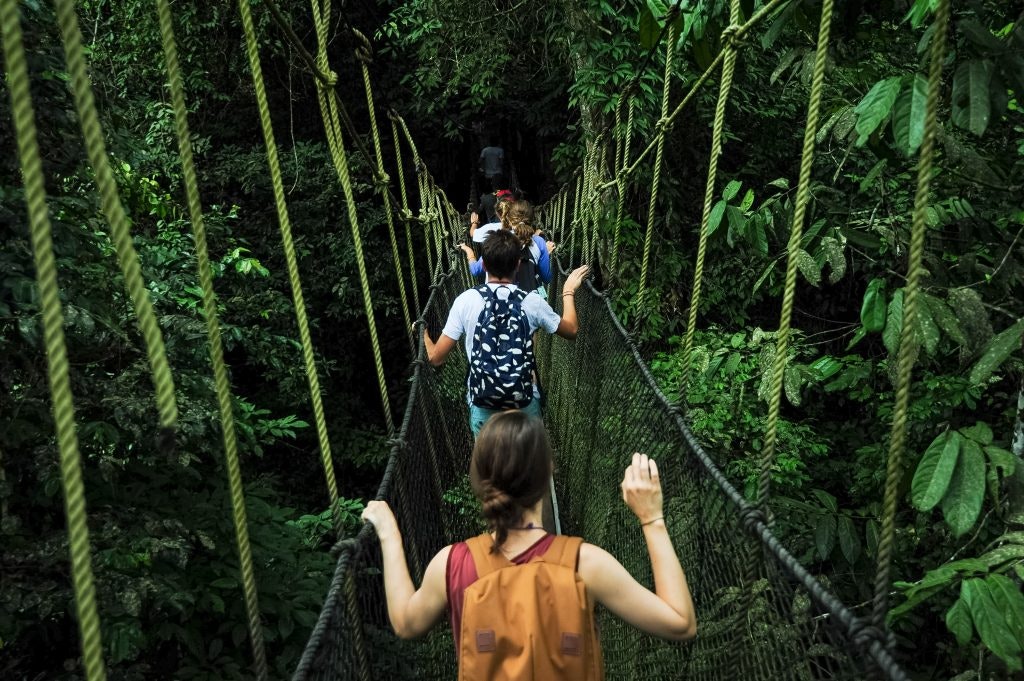
In Kakum National Park, students enjoy the views of the tropical rainforest as they walk across canopy bridges.
6. Ghana grows cacao, but doesn’t actually make a lot of cocoa
It’s hard to find cocoa in the country, that holds a position of the world’s second largest cocoa producer, just behind Côte d’Ivoire (the Ivory Coast).
Most of the country’s high-quality cocoa beans are exported, leaving minimal amounts for domestic use. Ghana’s annual chocolate consumption is only 0.5 kg per person, compared to 8.1 kg in Austria and 4.4 kg in the United States.
Top chocolate consuming countries compared to Ghana:
7. Ghana’s fantasy coffins celebrate the deceased’s passions
In Ghana, funerals are both a time to mourn and celebrate life. Custom-made “fantasy coffins” are personal tributes that honor and celebrate the deceased’s passions, achievements and professions.
Among the Ga people in southern Ghana, it’s believed that life continues in the next world just as it did on earth. For instance, a musician can be laid to rest in a guitar-shaped coffin, while a clan leader could be honored with a lion-shaped one. This is also a way to represent their social status.
These artistic coffins first captured global attention in 1989 at the Les Magiciens de la Terre exhibition in Paris. Since then, they have become an highlight of many museums and galleries around the world.
8. GhanaSat-1 represents Ghana’s debut in space technology
GhanaSat-1 is Ghana’s first nanosatellite, which was launched in 2017 by students from All Nations University in Koforidua, Ghana. The satellite was launched from the International Space Station (ISS) to monitor Ghana’s coastline and gather data for space research. Another feature is its ability to receive and play songs from Earth, such as Ghana’s national anthem, while orbiting in space. Pretty cool.
9. There is a “war” on the African continent over Jollof rice
The “war” is a debate over which country — Ghana, Nigeria, Senegal, Cameroon — makes the best version of jollof rice, a West African dish. Jollof rice is a flavorful mix of rice, tomatoes, onions and spices.
While UNESCO recognizes Senegal as the original creator of jollof rice, remember to give the local favorite answer when you’re in Ghana.



